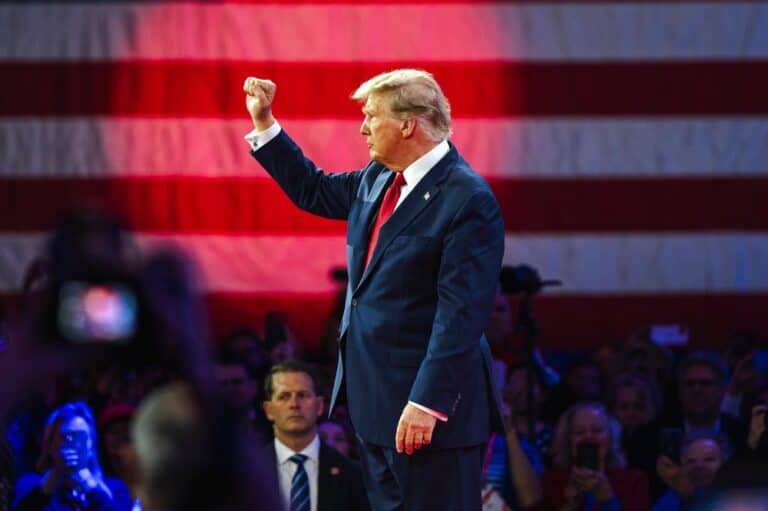President Donald Trump said Tuesday that he plans to impose tarrifs on chips shipped to the United States. The levy may start as early as April 2.
Trump recently introduced a 10% general import tariff on goods from China and a 25% tariff on all steel and aluminium imports. Now, it is the turn of cars, pharmaceuticals, and chips. A 25% levy is likely to follow for these.
For semiconductor chips and pharmaceuticals, Trump explained to reporters at his Mar-a-Lago resort in Florida that he plans to raise these tariffs even further. According to CNN, the levy for those two categories will increase significantly over the course of this year. But he added that he wants to give companies time to move their factories to America, circumventing the import duties.
This revelation comes just days after Trump investigated other countries’ tax and trade tariffs. This paves the way for him to impose new import tariffs that may come into effect as early as April 2. That is the day after the scheduled conclusion of the investigation. This was reported by Howard Lutnick, Trump’s intended Secretary of Commerce.
Getting back strategic industry
Trump’s announcement highlights his commitment to more balanced trade with foreign markets and to bringing strategic industries back to the U.S. He has long criticized what he sees as unfair treatment of American exports by foreign countries.
Economists and industry experts warn that the hefty new tariffs could have far-reaching consequences beyond the specific sectors they apply to. Consumers are likely to bear the brunt of higher prices. This is while the levies confront companies with rising costs.
TSMC is already building factories in the U.S.
Although American companies such as AI chipmaker Nvidia dominate the semiconductor industry, chip production has largely been outsourced to Asia in recent decades for cost and technical reasons. Nvidia declined to comment.
Taiwan Semiconductor Manufacturing Company (TSMC) pioneered contract chip production – producing chips for other companies without its name on them – and has become the world’s largest contract chip manufacturer.
TSMC informed CNN that the chip factories in Arizona, announced in 2020 during Trump’s first term, are progressing as planned. The company did not comment further. Trump has repeatedly accused Taiwan of stealing from the U.S. chip industry, a claim experts dispute.
Although details are still unclear, new levies on semiconductors would primarily hit Asian chip giants such as TSMC, South Korea’s Samsung and SK Hynix, which largely manufacture in Asia. The threat of new tariffs on imports could prompt these companies to set up or expand their operations in the US.
